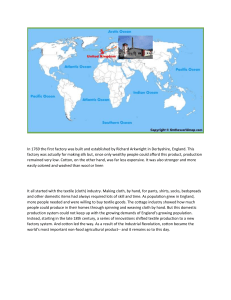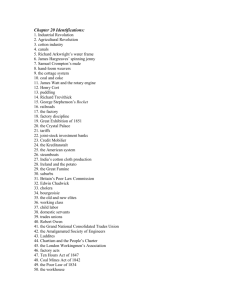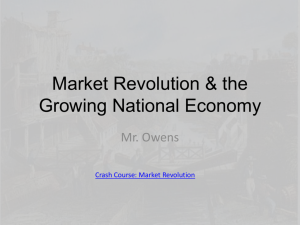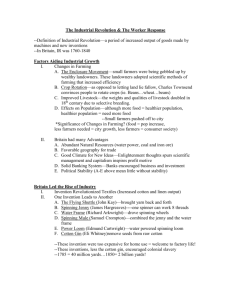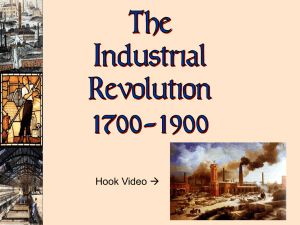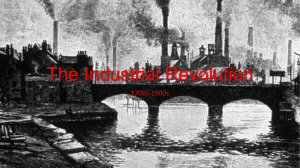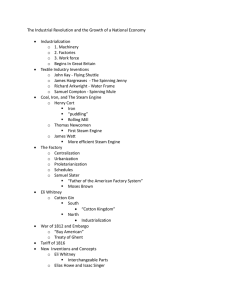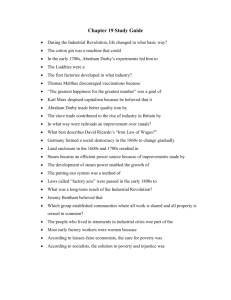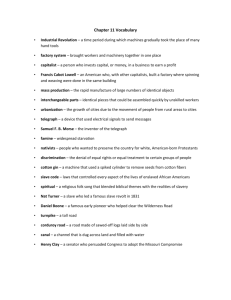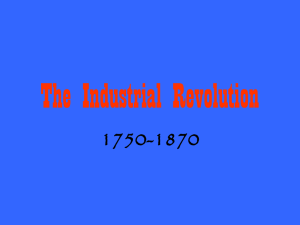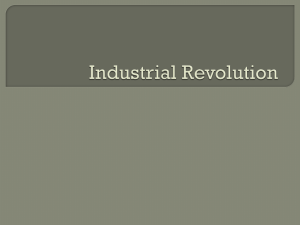The Industrial Revolution
advertisement
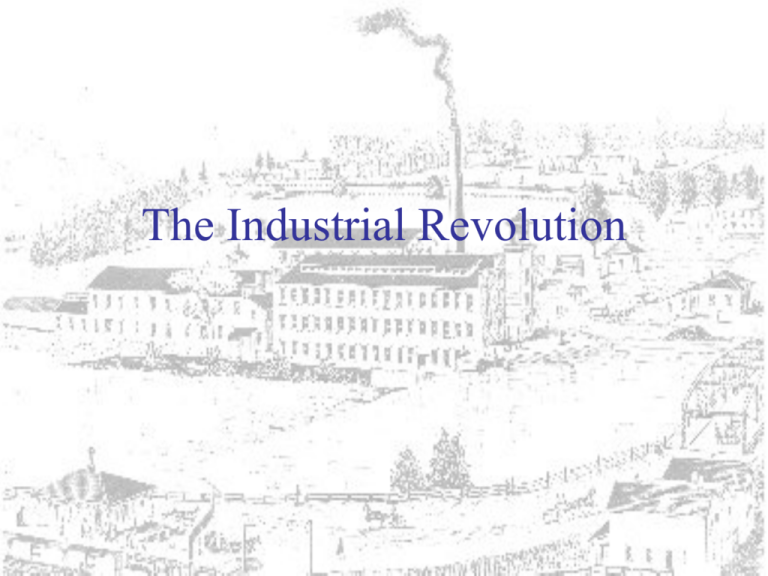
The Industrial Revolution What is it? • The shift from an economy based on agriculture and handcrafted goods to an economy based on manufacturing by machines in factories. – Starts in late 1700’s. Why does it start? • Remember Adam Smith? – Enlightenment Economist • “Father of Capitalism” – If individuals were free to pursue their own economic self-interest, then all society would benefit. “No society can surely be happy, of which the far greater part of the members are poor and miserable.” • If individuals are allowed to do whatever they want to make money, how will they respond? Governments in Europe Adopt Policies of Capitalism Citizens are now free to pursuit own economic self-interests People want wealth! So… People develop innovations in order to accumulate more wealth as fast as they can. Where is it happening? • Began in Great Britain – • First nation to settle down after crises of the 16th and 17th centuries. Why? 1. Increased food supply - - Food is cheap Money to buy other things 2. Population growth 3. Overall wealth 4. Natural resources - Colonies? 5. Lots of markets to sell goods. - Colonies? The Textile Industry • The textile industry is the first industry to industrialize. – New inventions speed up the spinning of thread and the weaving of clothes. James Hargreaves – Spinning Jenny Edmund Cartwright – Water-powered loom Add more power… • Machinery could now be connected to steam engines for power. James Watt – Steam Engine Increase in Production 1760 2.5 million pounds of cotton -Cottage Industry 1787 22 million pounds of cotton -Begin use of water- and steam-powered looms 1840 366 million pounds of cotton And a fuel for that power… • More coal had to be produced to power the steam engines. Better Building Materials • Better quality iron could be produced by using coke. Puddling Furnace – Henry Cort Better Way to Transport Goods • Railroads become a more efficient way to move resources and goods. Stockton & Darlington rail-line: First true railroad The Factory System • These new machines could be worked constantly. • So, factory owners wanted them to be worked constantly. – Forced workers to work in shifts to keep machines producing at a steady rate. The Factory System • Factory owners now wanted their workers to work without stopping. – “Make the men into machines that cannot err.” • Highly disciplined and repetitive.
